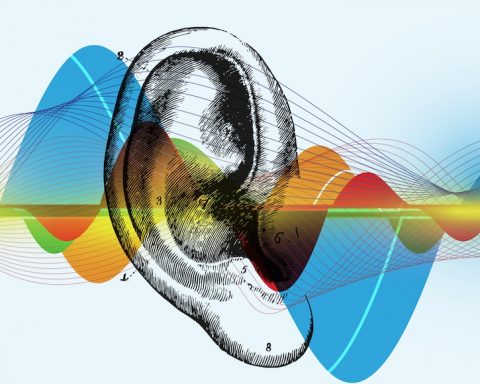Anosmia: When your nose goes off-duty
Anosmia (inability to smell) and hyposmia (reduced ability to smell) are relatively rare conditions, especially when it is about a complete loss of sense of smell, while hyposmia can be a consequence of ageing, akin to hearing or sight loss. It can be genetic or acquired, and usually it isn’t serious, but it affects the sense of taste and it can, in extreme cases, fail to alert the sufferer of an immediate danger, like gas leaks, fires or poison.
It can be temporary, and in most cases it is. Surely you have experienced how all foods have little taste when you are nursing a bad cold, but just imagine dealing with this sensation for a long time, or all life long, if you are born with it and you can never know what spring in the air smells like, or you tell apart coffee from hot chocolate only by the size of the mug.
Anosmia sufferers usually show little interest in pleasure eating and cannot fully grasp the idea of gluttony, which can indeed be a plus when it comes to dieting, but often makes their mealtimes boring and may lead to malnutrition.
In fact, when we taste food, we actually smell it first, and in our lifetime we learn to recognise hundreds of flavours, while our tongue is designed to feel only a handful of different tastes.
Lack of smell is usually due to irritation of the nasal mucosa, because of viral infection or allergies, but it can also have neurological causes and alas be the symptom of undiagnosed illness, perhaps serious, such as head trauma, nasal polyps, nasal septum deformities, tumours, or stroke.
Anosmia happens when the airborne molecules of any aromatic substance fail to carry to the top of our nose and fire up the olfactory nerves, whether because of a nose blockage or because said nerves are malfunctioning.
Certain medications can list partial anosmia in their side effects, particularly antibiotics – which are taken for a short period after which your sense of smell should be restored – and hypertension medication. In the latter case, treatment is prescribed for longer periods or permanently, so patients have to seek alternative ways around their secondary anosmia, unless their doctor can explore alternative medication that keeps blood pressure controlled without affecting the olfactory receptors.
Smoking, alcoholism, lengthy exposure to chemicals also damage the receptors, so anosmia can be an occupational hazard for cleaners, lab technicians, factory workers, and even police officers who spend long time in the midst of traffic jams.
It is important to investigate the causes of anosmia, especially when it manifests relatively suddenly and is not connected to rhinitis.
In fact, it can be an early symptom for vitamin deficiency, hypothyroidism, diabetes, epilepsy, schizophrenia, multiple sclerosis, Parkinson’s, Alzheimer’s and Huntington’s diseases, and one of the subtle red flags for transient ischemic accidents.
Conversely, anosmia is difficult to diagnose and measure, since different people are naturally born with different receptivity and different ability to notice and tell odours apart, when they are dim or similar. For example, have you ever noticed how frying onions smell like stale sweat? Well, you aren’t completely wrong there, since they contain the same sulfur-based molecules!
Anosmia is diagnosed with CT and MRI scans or nasal endoscopy and currently there is no treatment for it. It is particularly difficult to recognise when congenital, but alarm bells do ring when babies and toddlers don’t fuss over vegetables like broccoli or peppers, and when they don’t show any emotional reaction to being introduced to strong pleasant smells, like roses, or are invited to follow the scent towards the oven where a cake is baking.
Usually, there are no life-threatening complications for this condition, but it is recommended that sufferers install smoke alarms and are cautious with food storage, since they cannot detect any pong from deteriorated produce, or when opening jars and tins, as well as when using insecticide, bleach or ammonia.
The opposite to anosmia is called hyperosmia, described as a heightened sense of smell. This has no cure either, and it triggers recurrent headache and nausea.
Commonly, hyperosmia affects pregnant women, but it isn’t the direct cause for morning sickness. The condition may continue during breastfeeding.
Congenital hyperosmia does significantly affect the sufferers’ lives, limiting their comfort in crowded areas, whether indoors like public transport, elevators, restaurants, cinemas or nightclubs, or outdoors, like carnivals or busy thoroughfares. There, they will suffer from sensorial overload from other people’s perfumes and bodily odours, mixed with cooking food and spilt alcohol. Sadly, they’ll shun rose and lilies in their wedding bouquets…
But there is a silver lining: hyperosmia can even land you a prestigious job as essence mixer at a perfume factory, or sommelier in fancy wineries – it is known in the business as ‘nez absolu’, French for absolute nose.









